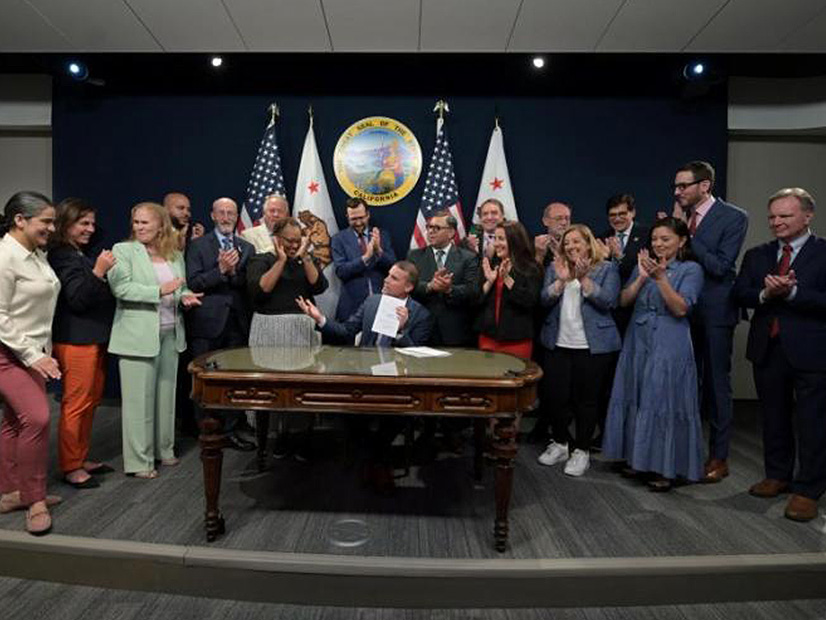
California lawmakers voted July 3 to send a $10 billion climate resilience bond measure to voters in November, and clean energy advocates are hailing the measure’s investments in offshore wind and transmission projects.
With a 33-6 vote in the state Senate and a 66-6 vote in the Assembly, the legislature passed Senate Bill 867, known as the Safe Drinking Water, Wildfire Prevention, Drought Preparedness and Clean Air Bond Act of 2024.
Lawmakers had worked over the weekend to hammer out the measure’s final language. (See Calif. Lawmakers Consider $10B Climate Resilience Bond.)
Senate President Pro Tem Mike McGuire (D), serving as acting governor, signed the bill the same day it was passed, just hours before the deadline for the Nov. 5 ballot.
McGuire said in a statement that the funds would help communities protect themselves against wildfires, floods and extreme heat.
The $10 billion measure includes $3.8 billion for safe drinking water and drought, flood, and water resilience, as well as $1.5 billion for wildfire prevention and forest resilience. There’s also funding to address sea-level rise, promote nature-based climate solutions and encourage climate-smart farms.
At least 40% of the funds must go to projects that benefit vulnerable residents or disadvantaged communities.
The bond measure allocates $850 million to clean energy projects, including $475 million for offshore wind — primarily building, expanding and upgrading port facilities.
Adam Stern, executive director of trade group Offshore Wind California, called the funding “an important down payment” toward achieving the state’s offshore wind targets of 5 GW by 2030 and 25 GW by 2045. The California Energy Commission’s offshore wind strategy estimates that $11 billion to $12 billion will be needed to upgrade ports to meet the 2045 goal.
“If the Golden State wants to go big on offshore wind, we must make the necessary investments to upgrade our ports to assemble and deploy these floating wind turbines,” Stern said in a statement following the Legislature’s votes.
Advanced Energy United, a national business group, said it worked with lawmakers to allocate $325 million for clean energy transmission projects, which may include reconductoring and other grid-enhancing technologies. An additional $50 million is designated for long-duration energy storage and distributed energy resources, including virtual power plants.
Edson Perez, the group’s California policy lead, called the funding for DERs and VPPs “crucial,” though he said more money would be needed to maximize the technologies’ benefits.
“This investment will strengthen our electricity grid’s reliability, flexibility and affordability, which is critical for preventing blackouts during extreme heat and wildfires,” Perez said in a statement.
The climate resilience ballot measure will need a majority vote to pass. The measure would authorize the state to sell up to $10 billion in bonds, which would be paid back with interest from the state’s general fund.
A legislative analyst estimated that principal and interest costs for the bonds would be $19.3 billion, assuming a 30-year term and a 5% interest rate.



